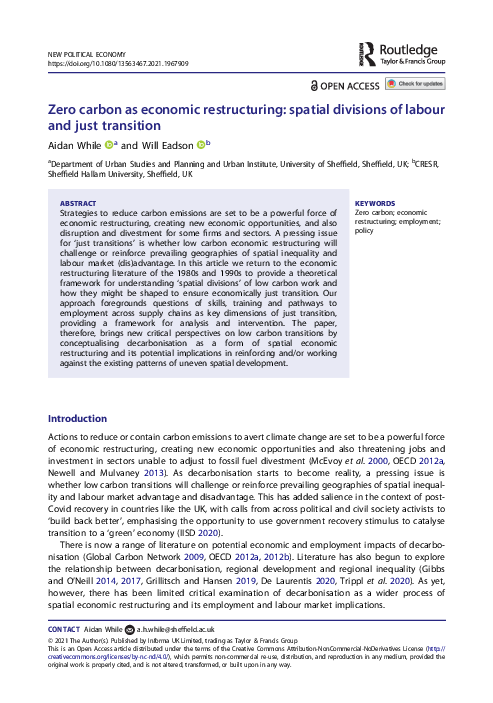Zero carbon as economic restructuring: spatial divisions of labour and just transition

2021
Early View
1-18
decarbonization ; economic impact ; industrial restructuring ; employment policy ; value chains
Economic development
https://doi.org/10.1080/13563467.2021.1967909
English
Bibliogr.
"Strategies to reduce carbon emissions are set to be a powerful force of economic restructuring, creating new economic opportunities, and also disruption and divestment for some firms and sectors. A pressing issue for ‘just transitions' is whether low carbon economic restructuring will challenge or reinforce prevailing geographies of spatial inequality and labour market (dis)advantage. In this article we return to the economic restructuring literature of the 1980s and 1990s to provide a theoretical framework for understanding ‘spatial divisions' of low carbon work and how they might be shaped to ensure economically just transition. Our approach foregrounds questions of skills, training and pathways to employment across supply chains as key dimensions of just transition, providing a framework for analysis and intervention. The paper, therefore, brings new critical perspectives on low carbon transitions by conceptualising decarbonisation as a form of spatial economic restructuring and its potential implications in reinforcing and/or working against the existing patterns of uneven spatial development."
Digital
The ETUI is co-funded by the European Union. Views and opinions expressed are however those of the author(s) only and do not necessarily reflect those of the European Union or the ETUI.